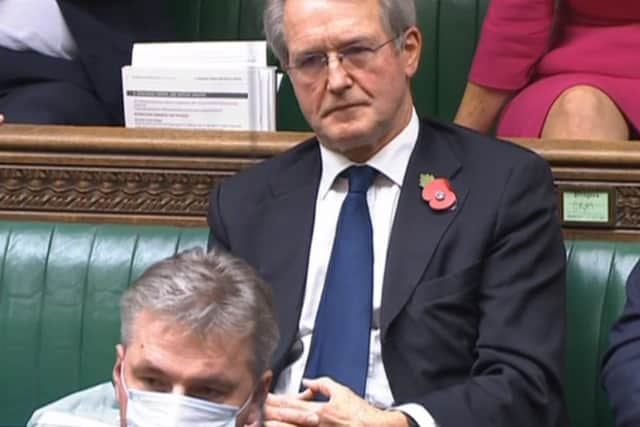Second jobs could be risky business - Stephen Connolly


In the wake of Mr Paterson’s asserted breach of parliamentary rules, similar accusations have been raised against other MPs. However, the question of second jobs and when they should be permitted is one which all employers ought to consider.
There are no general restrictions which prevent employees from holding secondary employment. The most common legal issue which employers would need to consider in such a situation is whether across the two roles the employee is working hours in excess of the maximum 48-hour working week permitted by the Working Time Regulations.
Advertisement
Hide AdAdvertisement
Hide AdGovernment guidance requires all of an employee’s working time to be counted. As such, employers should require employees with second jobs to notify them of hours worked for other employers so this can be monitored. Where secondary employment is likely to lead to an employee regularly working in excess of a 48-hour a week, the employer could consider asking the employee to sign an opt-out agreement which would disapply the normal maximum.


While taking up secondary employment is not prohibited, where an employee chooses to do this, they still need to ensure that any additional role does not see them act in breach of the contractual duties owed to their employer which will offer protection to a business. It is normal for the employment contract to state employees should devote their whole time and attention to their duties for their primary employer during their contracted hours.
Equally, implied into every contract of employment is a term that the employee will serve their employer with good faith and fidelity. This duty encompasses a duty not to compete with the employer until the employment ceases and extends to the employee's off-duty time. Other implied duties which an employee will owe during their employment include a duty not to disrupt the employer's business; a duty not to act in a position of conflict of interest; a duty to disclose wrongdoing; and a duty of confidentiality. Where there is a failure on an employee’s part to adhere to these duties, an employer would be justified in dealing with matters under its disciplinary procedure.
Reliance on these implied terms may not always provide sufficient certainty or security to an employer that an employee’s secondary employment will not create a risk to its business. Where this is so, employers have the option of including an express prohibition on any secondary employment in the employee’s contract. As an alternative, it is not uncommon for contracts of employment to state that secondary employment is permitted but only with the permission of the primary employer. That allows the employer a discretion over what outside activities the employee may engage in.
Care needs to be taken when seeking to rely on contractual bans on secondary employment. They will only be appropriate where there is a genuine need for them. Thought needs to be given to the seniority of the employee being asked to agree to such a restriction. It is unlikely going to be fair to ask a part time employee (who may have another part time job elsewhere) to agree to this. Where there is no obvious conflict between primary and secondary employment, there would appear to be no real basis for an employer to enforce such a clause. As with Mr Patterson, one important factor which may make such a clause suitable would be whether someone, being paid by the public purse, is able to exploit that primary role for the purposes of any secondary employment.
A recent report indicated 45 of 129 MSPs who sit at Holyrood declared some form of secondary income over and above their MSP salary. This suggests it is not just Westminster which has an issue to address in regards to second jobs. While these are high-profile cases which relate to public offices, it is important for employers to carefully assess what risks may arise from employees taking on secondary employment and what steps need to be taken to properly protect their businesses.
Stephen Connolly is an Employment Partner at Blackadders